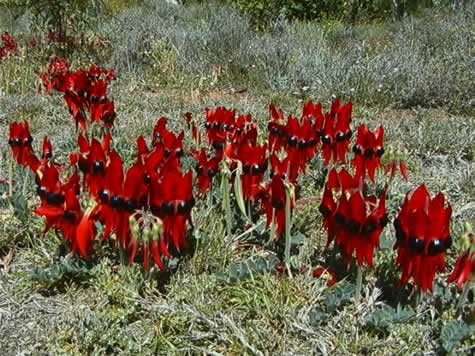2001 September 12, Wednesday. Larapinta Drive, between Alice Springs and Hermannsburg.
Once again exchanging cockcrow for the rich metallic trilling of a songlark, we escaped the noisy town; taking with us the knowledge which during our stay we’d gathered from local residents, the public library, the tourist information centre, and the Arid Lands Environment Centre.

At Arid Lands, we spoke with Colleen, who told us about some of the land management programs which are being co-ordinated through the centre. She has an interesting job because she has to deal with station owners, aborigines and town dwellers, who all have different ideas on how the land should be managed.
Regular burning off, the protection of native animals, the control of introduced species, and the re-vegetation of abused land, all need to be managed to protect bio-diversity in the dry and fragile ecosystem.
YALIA stands for Young Aboriginal Landcare In Action, and is a community project designed to help young aborigines learn land management skills by encouraging the passing on of traditional knowledge, and augmenting this with modern western farming methods.
The Tangentyere Land Care Council began YALIA in 1997, with funding from the National Heritage Trust. Tangentyere was originally a community health care facility for aborigines in town settlements. It has since expanded to work with rural communities.
YALIA programs are interactive and hands-on because English is a second language for most of the participants. Their students come from all age groups (so that older members can help the younger ones) and they take trips in the country and learn things like:
* Seed collection and propagation
* Habitat Studys
* Animal Watch
* Tree planting
* The uses of plants as food and bush medicine.
Find an organisation working toward sustainability in your home area. What is their eventual goal? What are they trying to achieve? What problems do they face?
bel